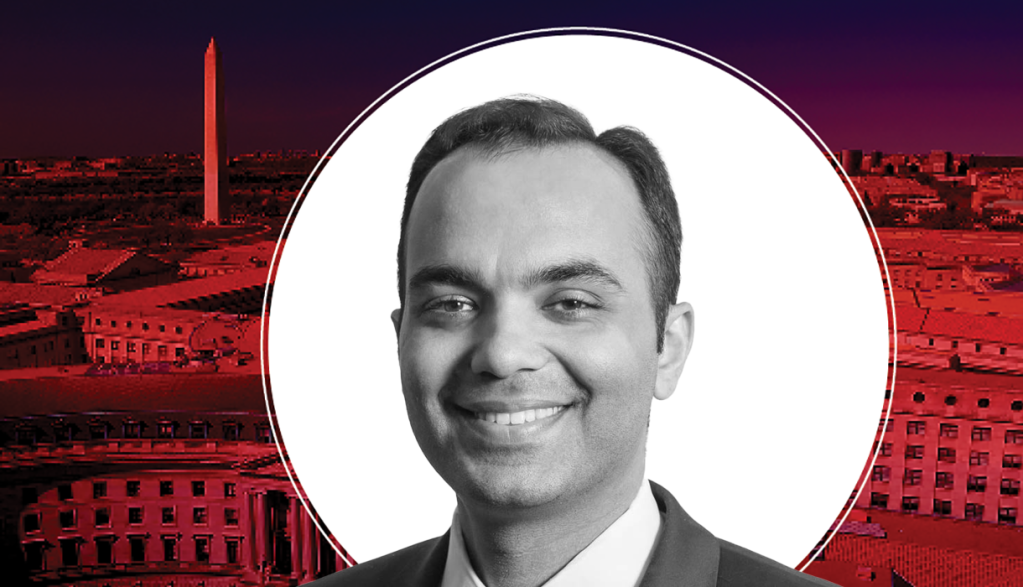
[Editor’s note: As of November 2022, we no longer use Slack, and we’re happy to share that we’ve moved to Circle for our new community platform. We will be continuing Q&As, live discussions and more in this new community platform. If you’re a member and not a part of our Circle community yet, you can click the link at the end of the article to join.]
Over the last month, two of the biggest housing regulators either changed or were rumored to change leadership. In mid-September, there were talks that the Biden administration would nominate Mike Calhoun, president of the Center for Responsible Lending, as the new FHFA director, and at the end of September, Rohit Chopra was officially confirmed as director of the Consumer Financial Protection Bureau (CFPB) for a five-year term.
According to coverage from Senior Mortgage Reporter Georgia Kromrei, a lot remains to be seen with both of these leadership changes, leaving the industry looking for answers. The following Q&A helps shed some light on these changes, as Kromrei answers questions on what is going on with the federal regulators.
The following Q&A is from the HW+ exclusive Slack channel and has been lightly edited for length and clarity. To join future HW+ Q&As, you can join our premium membership program here.
HousingWire: To begin, could you give us more insight on what will Rohit Chopra’s focus be at the CFPB?
Georgia Kromrei: So, I think for the mortgage industry, in trying to predict what Chopra’s focus will be… the good news is that there has been quite a long time since Biden nominated Chopra back in January and when he was finally confirmed by the Senate, a couple of weeks ago.
The CFPB typically runs analyses of lenders’ performance and compares it to their peers — so lenders who want to avoid a redlining investigation will be looking to strengthen their internal data monitoring. That includes assessing their own performance, making sure they know who their peer group is, and who the CFPB may think their peer group is.
We can also glean a little bit about what the CFPB is working on in terms of redlining from their semi-annual report, which they released a few days ago. Don’t worry, I read it so you don’t have to!
HousingWire: To add to that, what do we know about what’s already in the works at the CFPB in terms of enforcement? Any hints on who might be in the crosshairs?
Georgia Kromrei: Right – so, I don’t want to skip over the latest action, which was a settlement with a reverse mortgage lender for allegedly inflating home estimates in direct advertisement materials.
Sources told me that the timing of that settlement – just before Chopra took office – was meant to allow Chopra to focus more on the issues he wants to prioritize, fair lending and student loans. But back to the long semi-annual report – in it, the CFPB noted that they’ve already referred three redlining cases for the Department of Justice to look into.
Those three cases are regarding redlining in mortgage origination based on race and national origin, discrimination in mortgage origination based on receipt of public assistance income, and pricing discrimination in mortgage origination based on race and sex. We don’t yet know who the individual entities are yet, or what the conclusion of those investigations might be.
For context, the DOJ recently settled (in August) with a Texas bank over redlining. The lender had to pay about $8.5 million.
The CFPB also said it has a “number of ongoing and newly opened fair lending investigations,” and based on my conversations with compliance attorneys, that is definitely the case. They are working overtime!
HW+ Member: Many people have speculated that Chopra’s return to the CFPB (he used to be student loan ombudsman there) will be a return to the Cordray era of regulation by enforcement.
But how might Chopra’s style and priorities be a departure from the Cordray era? It’s interesting too since Cordray is now serving as the Federal Student Aid Chief Operating Officer at the US Department of Education.
Georgia Kromrei: That’s true – the Cordray era definitely looms large. I think certainly Chopra is a departure from the CFPB under the previous administration — which generally tended to go after smaller entities, and opted for consent orders rather than public litigation. Many expect Chopra to go after larger entities, but I also think he may have more of a focus on fintech.
HW+ Member: Has the conversation changed for Independent Mortgage Lenders to be more on the radar of regulators for this type of scrutiny in the near future?
Georgia Kromrei: I haven’t heard from the CFPB specifically that they’re taking a special interest in non-depositories. But I have definitely heard from compliance experts that the CFPB may be interested in going after big names that may result in big, splashy headlines. I think it’s part of their strategy, as a consumer-facing agency.
HousingWire: What is the current sentiment around the leadership shake-up at the CFPB that was just announced?
Georgia Kromrei: I think people are still parsing through the news — since it just happened yesterday. but since it happened literally on Chopra’s second day at the CFPB, I think it’s safe to assume it had been in the works for a while.
Actually it’s an issue that had come up in Chopra’s confirmation hearings — Republican Sen. Patrick Toomey accused the Biden administration of kicking out long-time career officials at the CFPB to make room for “hand-picked loyalists,” is how he put it, I believe.
That sounds dramatic, but it’s not unusual that a new administration will make sure it has people in place who it believes will carry out its agenda (although federal law prohibits hiring based on party affiliation).
I think a super interesting hire was Erie Meyer, who Chopra actually brought on as chief technologist at the FTC. The CFPB created a new position for her as chief technologist. That’s part of why I think the CFPB may have more of a focus on fintech. Meyer was also previously at the CFPB, when it was being stood up, and she helped found its office of technology and innovation. It feels a little bit like Chopra is getting the dream team (or nightmare team?!) back together.
HW+ Member: Does anyone know the changes that Chopra and Thompson envision for the credit bureaus reframing? (The possible Redlining as it applies to the credit bureau process.)
Georgia Kromrei: I hadn’t heard credit bureau and redlining mentioned in the same breath – I would be curious to know if there is a connection for regulators.
But re: credit bureaus, the FHFA (led by Sandra Thompson) is considering major changes to the credit score model – as part of a 2019 final rule it issued, it’s working through a lengthy process to basically determine if it’s feasible to use something other than FICO.
It will be an interesting fight to watch. The major FICO competitor is VantageScore, and the FHFA quietly announced in August that their model had passed the FHFA’s test for “accuracy, reliability and integrity.” Now they are looking at the impact of using an alternative model on the GSEs’ “proprietary business systems and processes.”
VantageScore is owned by TransUnion, Experian and Equifax, which FICO has said would give the credit bureaus too much power. We’ll see how that turns out!
HW+ Member: Has the agency given direction (from a fintech) perspective of the future expectations of how to conduct business in the space as it relates to consumer usage tied to demographic disclosure? I find fintech being more focused on security not lending practices with these recent moves.
Georgia Kromrei: On direction from the agency from a fintech perspective, I haven’t seen any. But I’m sure that would be welcomed – one thing the industry has said they were really hoping for from the CFPB is clarity on what the rules of the road are, rather than regulation by enforcement.
Also, one more thing on credit scoring and how Thompson is thinking through that – she actually said in an interview just a few weeks ago that the GSEs should change their approach to credit decisions.
HousingWire: To wrap, the FHFA has ticked off a lot of items on the housing industry’s agenda in the first months of Sandra Thompson’s tenure as acting director. What else are they working on?
Georgia Kromrei: Yeah, FHFA has been very busy. But I think there’s more to come. One upcoming thing is the decision on the credit scoring models – I think that will be soon, but I’m not exactly sure of the timing.
And then the agency will be looking at all of the ways it can move the needle on better serving borrowers of color. Thompson recently said they will be taking a look at pricing and LLPAs – that would be big. She also said taking into consideration things like cell phone payments might help more borrowers qualify for mortgages.
If you missed the first part of this Q&A, go here.
Take full advantage of your HW+ membership and join our exclusive Circle platform dedicated only to HW+ Members! To join the community, go here.




